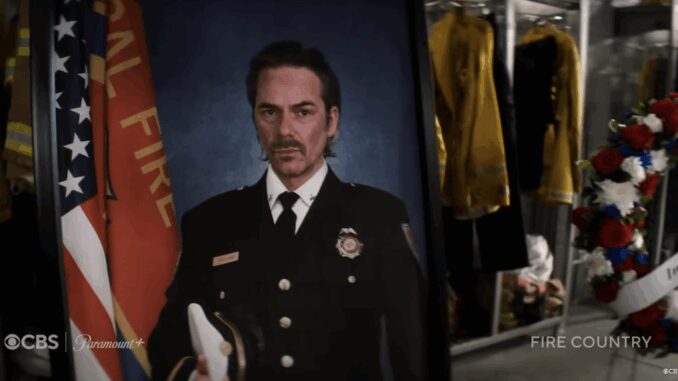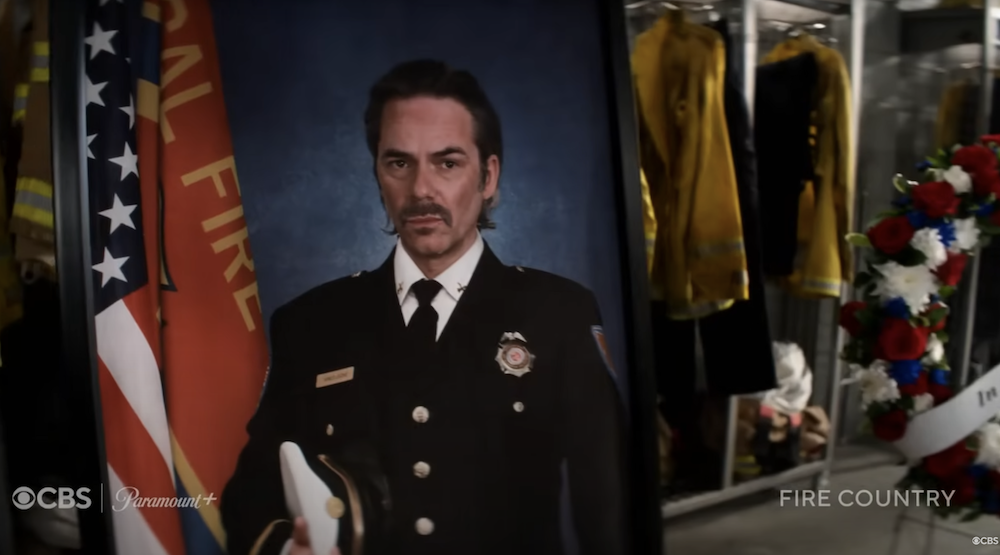
The Unseen Current: How Vince’s Death Will Ripple Through the ‘Fire’ Spinoff
The pronouncement from the “Sheriff Country” boss regarding Vince’s death and its indelible mark on the forthcoming “Fire” spinoff isn’t merely a plot revelation; it’s a testament to the profound, almost geological, forces that shape serialized storytelling. When a character as central as Vince meets his end, it’s not simply a narrative cul-de-sac, but a seismic event whose tremors will be felt far beyond the immediate scene of the tragedy, creating an unseen current that will redirect rivers and carve new landscapes in a shared fictional universe.
The first, most immediate ripple will be the ghost of his absence within the surviving cast of “Sheriff Country.” Vince’s death isn’t just a loss of a character; it’s the removal of a gravitational center. Every conversation will subtly orbit the empty space he left behind. A quiet glance at an empty coffee cup, a shared, unspoken memory sparked by an old song on the radio, a difficult decision that would have once sought his counsel – these become the everyday memorials. The “boss” understands that grief isn’t a single, dramatic sob, but a thousand quiet echoes. For Vince, his legacy won’t be defined by the manner of his death, but by the myriad ways his presence continues to shape the living: the newfound grit in a former protégé, the haunting regret in a rival, the silent, enduring love in a family member. His absence will become a character in itself, influencing motivations, deepening conflicts, and adding a layer of poignant realism that no amount of dramatic exposition could achieve.
This leads directly to the second, more intricate wave: the interconnected narrative tissue that binds “Sheriff Country” to its “Fire” spinoff. The boss’s revelation highlights the meticulous architecture of a shared universe, where the fates of characters in one series profoundly impact another. Perhaps a key character from “Sheriff Country” — Vince’s estranged sibling, a detective he mentored, or even the perpetrator responsible for his death — now finds themselves woven into the fabric of the “Fire” narrative. Their entrance into the new series wouldn’t be a clean slate, but rather a journey weighted by the baggage of Vince’s demise. The trauma, the quest for justice, the unresolved emotional wounds from “Sheriff Country” would arrive with them, creating immediate stakes and complex backstory for the new show. The “Fire” spinoff, therefore, isn’t just a new beginning; it’s a direct consequence, a continuation of a story that simply changed its focal point, much like a river diverging into a new tributary but carrying the same essential water.
Finally, and perhaps most compellingly, Vince’s death, as orchestrated by the “Sheriff Country” boss, serves as a powerful illustration of creative intention and narrative courage. Killing a popular character is never an easy decision; it risks alienating viewers and closing off potential storylines. Yet, when executed with purpose, it can elevate a story from mere entertainment to profound art. This is not about gratuitous shock value, but about using death as a catalyst for evolution. For the “Fire” spinoff, Vince’s demise could be the very spark that ignites its central conflict, deepens its themes of loss and resilience, or forces its characters to confront difficult truths about their world and their purpose. It’s a bold declaration that consequences are real, even in fiction, and that the world these characters inhabit is dangerous and unpredictable. The “boss” isn’t just revealing a plot point; they’re revealing a philosophy of storytelling – one where life and death are intertwined, and where even in an ending, there is a fertile ground for new beginnings.
Vince’s death, then, is far more than a simple plot device. It is an unseen current, flowing from the heart of “Sheriff Country,” carrying the sediment of memory and grief, shaping the very landscape of the “Fire” spinoff. It’s a testament to the enduring power of character, the intricate artistry of a shared universe, and the audacious vision of a storyteller who understands that sometimes, to truly build, one must first be willing to destroy. The ripples will indeed be felt, long and deep, a quiet thrum beneath the surface of every new episode.
